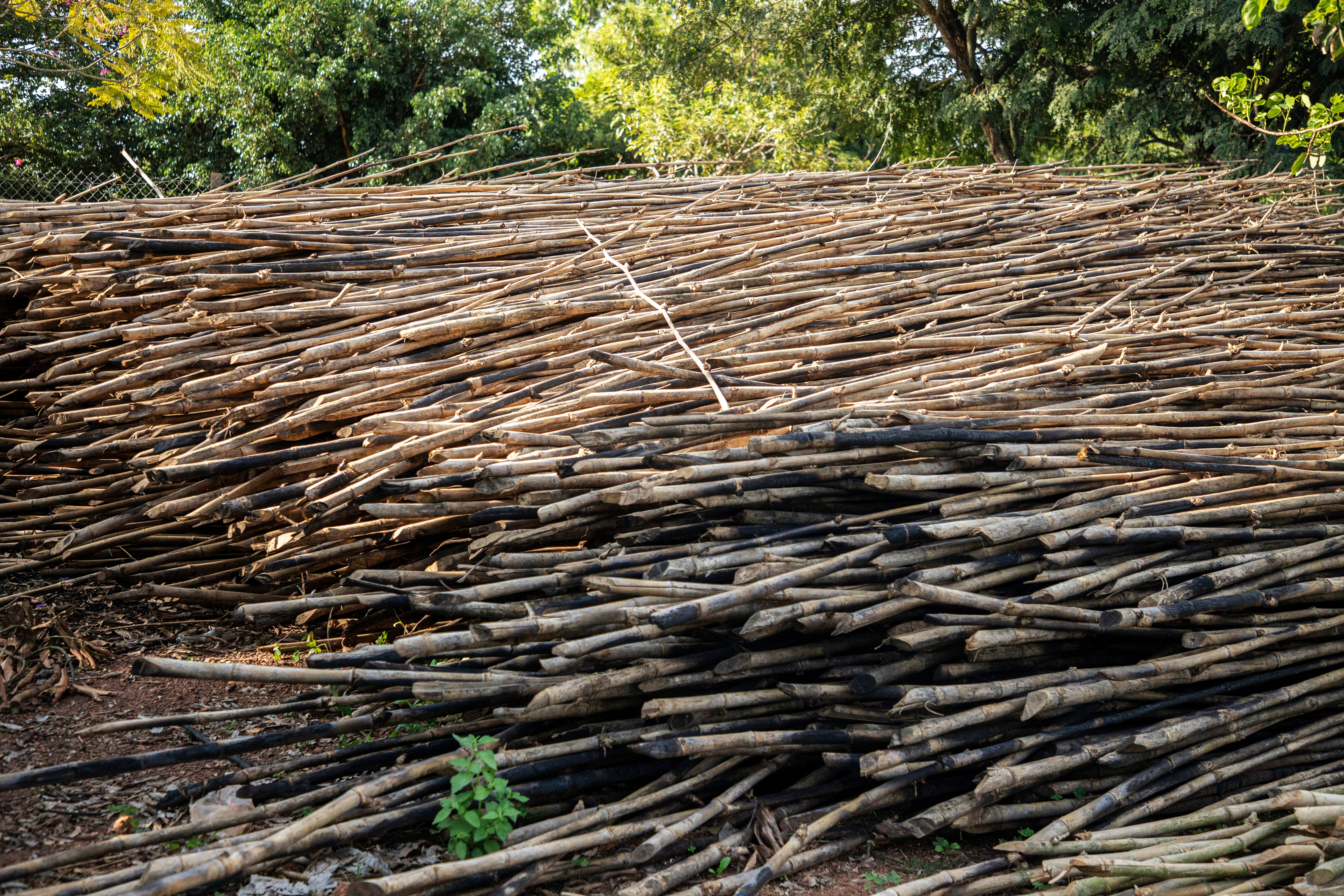Toilet roll test reveals hardwood used in ‘bamboo only’ paper
Acaciam which has been linked with deforestation in countries like Indonesia, were found in Bazoo and Bumboo’s paper
Your support helps us to tell the story
From reproductive rights to climate change to Big Tech, The Independent is on the ground when the story is developing. Whether it's investigating the financials of Elon Musk's pro-Trump PAC or producing our latest documentary, 'The A Word', which shines a light on the American women fighting for reproductive rights, we know how important it is to parse out the facts from the messaging.
At such a critical moment in US history, we need reporters on the ground. Your donation allows us to keep sending journalists to speak to both sides of the story.
The Independent is trusted by Americans across the entire political spectrum. And unlike many other quality news outlets, we choose not to lock Americans out of our reporting and analysis with paywalls. We believe quality journalism should be available to everyone, paid for by those who can afford it.
Your support makes all the difference.Claims by “eco-friendly” toilet roll companies about their products have been called into question after testing.
The consumer champion Which? said it carried out fibre-composition testing on five popular brands, which claim their rolls are “bamboo only” or “100% bamboo”.
The study found that samples from Bumboo, Naked Sprout and Bazoo contained very low or low levels of bamboo-like grass fibres – 2.7%, 4% and 26.1% respectively.
Instead, it found that the toilet papers were mainly composed of less eco-friendly fast-growing virgin hardwoods – mostly eucalyptus.
Bamboo is a fibre often touted as a green alternative to virgin paper due to its fast growth, although it can be linked to unsustainable uses of pesticides and fertilisers, as well as unsustainable conversion of forests if uncertified.
Some acacia, which has been linked with deforestation in countries like Indonesia, were also found in Bazoo and Bumboo’s paper.
However, the two other brands – Who Gives a Crap (WGAC) and The Cheeky Panda – were shown to contain 100% bamboo as claimed.
Emily Seymour, Which? sustainability editor, said: “Given so many shoppers are taking steps to be more sustainable, it’s vital they can trust claims made by brands – particularly when they are paying more for a product they believe is better for the environment.
“Businesses must take responsibility for ensuring their products contain what they say on the packaging so that shoppers who want to make sustainable choices can trust the information they are given.”
Which? said its testing was done at an independent lab using an industry-standard test from the Technical Association of the Pulp and Paper Industry (TAPPI), known as T 401, which breaks down a sample of paper into its constituent fibres to quantify and identify them.
While the consumer watchdog did not assess brands’ supply chains, it said the test findings highlight the challenges UK firms face to ensure quality control when materials for their products are sourced thousands of miles away.
Bumboo, Bazoo and Naked Sprout, which all source their bamboo material from China, said they use bamboo certified by the Forest Stewardship Council (FSC) – an international non-profit that certifies responsibly-managed timber supply chains.

A spokesperson for Bumboo said it “had identified an issue in (its) supply chain and taken swift action so this can never happen again”.
“Any affected customers have been contacted and we are increasing our fibre testing, so every batch is independently verified,” they added.
“This will provide complete transparency that all future products are 100% bamboo.”
The brand said it was now using the “gold standard” TAPPI T 401 test to verify the fibre composition of every batch and publishing the results on its website.
Meanwhile, Bazoo said it undergoes extensive auditing with the FSC every six months since it started trading.
“It was very important to us and integral to find a bamboo supplier and manufacturer who was 100% FSC certified,” a spokesperson said.
The firm added it is investigating currently with the FSC body and its manufacturer in depth after the Which? findings.
Naked Sprout claims it is selling the “UK’s most sustainable tissue products”, but Which? said this claim is largely based on its fossil-free B Corp-certified manufacturing, meaning it meets high social and environmental standards.
The brand said that the bamboo pulp it uses is verified by a strict audit trail, also used by the FSC, of its supply chain and raw materials.
It said its supply chain is deliberately small, consisting of only four suppliers and one manufacturer.
As a result, all materials used are FSC-certified and fully traceable from raw material to end product, the firm added.
Naked Sprout also claimed there were limitations with TAPPI T 401 and disputed the objectivity and validity of the test method.
But Which? said the test is a globally-recognised industry benchmark, adding it believes the clear results leave little room for doubt.
TAPPI said it saw no contradictions in Which?’s application of the test method, adding that it “seems disingenuous” to suggest that a test method applied successfully to other brands tested for this article would be inadequate for Naked Sprout.
An FSC spokesperson said: “We take our integrity seriously and are committed to working with the organisations involved to ensure this is fully investigated and any appropriate action taken to ensure FSC labels accurately reflect the composition of FSC-certified products.”
The FSC said it was “concerned” by the Which? test results and had alerted its supply chain integrity team.

Join our commenting forum
Join thought-provoking conversations, follow other Independent readers and see their replies
Comments